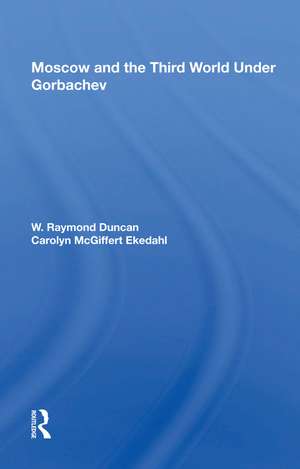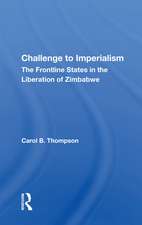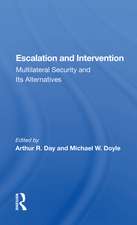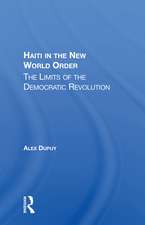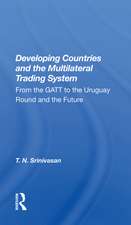Moscow And The Third World Under Gorbachev
Autor W. Raymond Duncanen Limba Engleză Hardback – 28 apr 2020
| Toate formatele și edițiile | Preț | Express |
|---|---|---|
| Paperback (1) | 252.81 lei 6-8 săpt. | |
| Taylor & Francis – 31 oct 2022 | 252.81 lei 6-8 săpt. | |
| Hardback (1) | 765.01 lei 6-8 săpt. | |
| Taylor & Francis – 28 apr 2020 | 765.01 lei 6-8 săpt. |
Preț: 765.01 lei
Preț vechi: 1027.88 lei
-26% Nou
Puncte Express: 1148
Preț estimativ în valută:
146.40€ • 151.92$ • 122.37£
146.40€ • 151.92$ • 122.37£
Carte tipărită la comandă
Livrare economică 15-29 martie
Preluare comenzi: 021 569.72.76
Specificații
ISBN-13: 9780367006914
ISBN-10: 036700691X
Pagini: 278
Dimensiuni: 146 x 229 mm
Greutate: 0.5 kg
Ediția:1
Editura: Taylor & Francis
Colecția Routledge
Locul publicării:Oxford, United Kingdom
ISBN-10: 036700691X
Pagini: 278
Dimensiuni: 146 x 229 mm
Greutate: 0.5 kg
Ediția:1
Editura: Taylor & Francis
Colecția Routledge
Locul publicării:Oxford, United Kingdom
Cuprins
Preface and Acknowledgments -- Introduction: Gorbachev and the Third World -- The Study of Soviet-Third World Politics -- The Study of Soviet-Third World Relations -- Soviet Policy Toward the Third World: Gorbachev's New Directions -- Moscow and the Third World: The Record -- Gorbachev's "New Thinking": Economic and Strategic Priorities -- "New Thinking" in Soviet-Third World Policy -- Regional Case Studies -- Afghanistan and South Asia -- The Middle East -- Asia -- Sub-Saharan Africa -- Latin America -- Prospects for the Future -- Conclusions -- Appendixes
Descriere
Soviet policy toward the developing world has changed dramatically since Mikhail Gorbachev assumed power in 1985. This book explores the shape and scope of Moscow's "new thinking" in its Third World context— highlighted by the USSR's surprising withdrawal from Afghanistan in 1988. Other policies examined include putting pressure on allies such as Cuba and Vietnam to end their military involvement in Angola and Cambodia respectively; expanding relations with old adversaries such as China, South Korea, South Africa, and Israel; and pursuing closer ties to developed Third World countries while reducing support for weak states. After reviewing the foreign policy record Gorbachev inherited, the authors assess his economic and strategic priorities in the diplomatic arena and their impact on specific regions. Each regional chapter reviews past Soviet policy, examines the rationale for Gorbachev's present initiatives, and weighs future trends—including implications for U.S.-Soviet relations. Thoroughly updated through the winter of 1990, this book provides the most current analysis available of a vital and continuously evolving part of the world.
